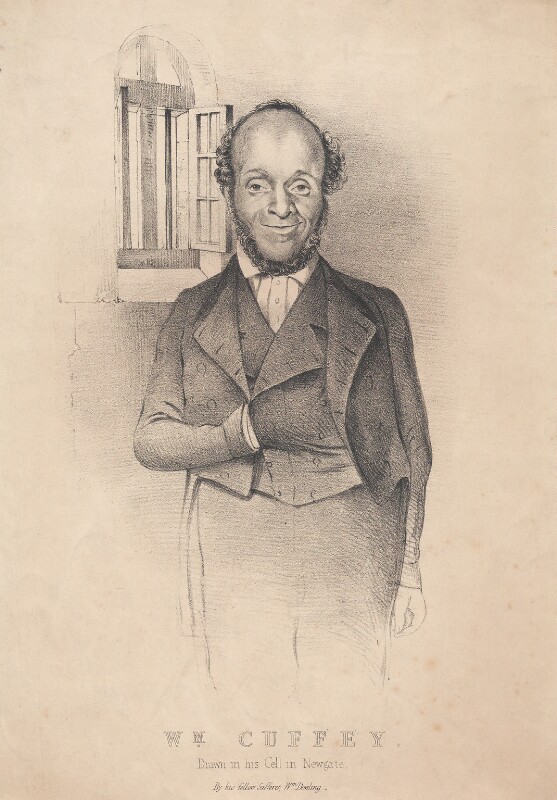Written by Richard Akerele, MSt in Social Innovation and Graduate Associate Research Fellow for the Cambridge Centre for Social Innovation.

Sometimes the significance of a particular moment only becomes clear once you look back and reflect. With the benefit of hindsight, I can see how this moment was pivotal.
While waiting for a friend in Lewisham, South London, in August 2019, and trying to make the most of my time, I decided to visit a nearby library. If anything, it would give me a much-needed respite from carrying my laptop and books around; but before I could even find a spare seat in the library, my eyes were drawn to an unassuming poster board titled, Black Victorians in London. I couldn’t believe what I was seeing, stories of significant and pioneering Black Victorians, such as Phyllis Wheatley and William Cuffay. As I began to read these stories, my mind was racing with questions. Why is there an exhibition about Black Victorians here? Why now? (Surely, we only heard about Black British history in October right?) Why were these stories not being taught in schools?
This moment became the catalyst for my Master’s dissertation for the Mst in Social Innovation, at Cambridge Centre for Social Innovation at Cambridge Judge Business School. I researched how to integrate Black British history into the curriculum, working with two schools in London. While I believed it was important, I could not have envisioned how central the question of Black British history and identity would be. Following the murder of George Floyd, and the waves of Black Lives Matter protests in England and America, this was firmly in the public eye.
With this mind, I wanted to share some findings from my research, that continue to be relevant in 2021.
There is nothing new under the sun
When King Solomon wrote the above statement, he was reflecting on the seemingly unchanging plight of human life, and how we often encounter the same things across different periods of history – albeit in different forms. While we may be in a ‘modern’ age, we still have a lot to learn from individuals of different epochs, and their struggles. Without historical context, we risk becoming myopic in our understanding of change. We are not the first to try to teach Black British history. For example, the supplementary school movement, a group of parents from African-Caribbean descent in the 1960s and 1970s, taught children Black British history on Saturdays. There have also been attempts to integrate Black British history into the curriculum in schools.
The introduction of Black History Month in 1987 was pivotal, although there were limited resources or support for history teachers at that time. Our growing body of historical evidence could help, detailing black and ethnic minority presence in the UK since the 16th Century. I wanted to contribute with my research, which involved A-level history students from two diverse schools in London.
A history with two sides
Through repeatedly emphasising a history that ensures students take ‘pride in this country’s historical achievements‘, history teaching in schools have overlooked the fundamental question of whether all students could truly take ‘pride‘ in such British achievements. For instance, the focus on Britain’s achievement is often framed without reference to the devastating effects of British colonial countries, and significantly how black and ethnic minorities students might view this jingoist view of British history. Subsequently, many attempts to integrate positive Black British history into schools have been sidelined as a separate history distinct from the traditional British ‘achievement’ history. In other words, clearly demarcating what should be taught as a foundational and intrinsic part of British history, compared with an alternatively more diverse Black British history. Thus, unsurprisingly students in both schools in this research highlighted their GCSE history curriculum as ‘mainly white history‘. Therefore, there must be increasing effort to acknowledge the ‘other’ side of British history and the positive role of Black and ethnic minorities, within and not separate to British history itself. This is vital step in fostering a collective and unified sense of British identity and history in our undeniable multicultural society.
The past present tense
We cannot deny the pervasive influence of the past on the present. We saw this as the students in the research discussed their own diverse personal and family histories. One thing was clear: Black British identity matters! The story of Black Victorians living in London inspired students to identify that history as their own. This showed the importance of diverse accounts of British history.
Importance of knowledge sharing
A recurring theme was students’ eagerness to share their knowledge and experiences of Black British history. I supported the students to design and deliver a history lesson to year 9 pupils in their school. This kind of engagement helped make history more inclusive, especially for Afro-Caribbean students, who found history lessons boring, when the curriculum excluded their heritage. I believe, teachers who may feel uncomfortable or ‘unqualified’ to teach Black British history, could leverage the knowledge of different students and their histories. In this way, history lessons become a dialogue with students, instead of ‘delivering’ the curriculum, fostering a community of learning.
Richard Akerele
In these episodes of The Social Ideas Podcast: a moment in time, Richard Akerele discusses how a trip to the ‘other side’ of London inspired his MSt in Social Innovation research dissertation and Bristol’s link to slavery.
Richard is a graduate of the MSt in Social Innovation and the founder of the charity, East London Connect. The charity helps young people of ethnic heritage achieve their full educational and career potential. He is also a diversity consultant working across different industries to provide innovative and effective solutions to improve representation in organisations. Richard is currently a PhD Candidate at University of Bristol, School of Management. His research focuses on Black British history and Black entrepreneurship in the 18th Century.



Leave a Reply